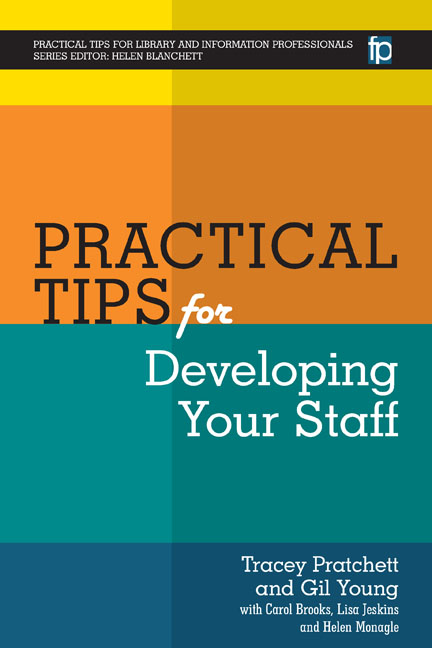Book contents
- Frontmatter
- Contents
- List of figures and tables
- Acknowledgements
- The authors
- List of abbreviations
- Series Editor's introduction
- Introduction
- Section 1 Theories
- Section 2 Infrastructure
- 11 Why develop staff?
- 12 Workforce planning
- 13 Job descriptions
- 14 Person specifications
- 15 Advertisements
- 16 Shortlisting
- 17 Interviews
- 18 Interviews – presentations and tests
- 19 Interviews – feedback
- 20 Inductions
- 21 Managing performance
- 22 Team development plans
- 23 Appraisals – preparing
- 24 Appraisals – conducting
- 25 Setting objectives
- 26 One-to-ones
- 27 Feedback – general
- 28 Team building
- 29 Team meetings
- 30 Sharing learning with the team
- 31 Writing references
- 32 Exit interviews
- 33 Effective handover
- Section 3 Activities and tools
- Index
29 - Team meetings
from Section 2 - Infrastructure
Published online by Cambridge University Press: 09 June 2018
- Frontmatter
- Contents
- List of figures and tables
- Acknowledgements
- The authors
- List of abbreviations
- Series Editor's introduction
- Introduction
- Section 1 Theories
- Section 2 Infrastructure
- 11 Why develop staff?
- 12 Workforce planning
- 13 Job descriptions
- 14 Person specifications
- 15 Advertisements
- 16 Shortlisting
- 17 Interviews
- 18 Interviews – presentations and tests
- 19 Interviews – feedback
- 20 Inductions
- 21 Managing performance
- 22 Team development plans
- 23 Appraisals – preparing
- 24 Appraisals – conducting
- 25 Setting objectives
- 26 One-to-ones
- 27 Feedback – general
- 28 Team building
- 29 Team meetings
- 30 Sharing learning with the team
- 31 Writing references
- 32 Exit interviews
- 33 Effective handover
- Section 3 Activities and tools
- Index
Summary
AS MANAGERS OR supervisors of LKS teams you will be regularly involved in formal, scheduled meetings as part of the day-to-day running of the service. These could be meetings with other LKS staff or alternatively with stakeholders or users of your service, examples of which are management meetings, user group meetings or health and safety meetings (ILM, 2007).
This Tip focuses on group meetings (one-to-one meetings are discussed in Tip 26, p. 61) and we will consider how you can make the most of these meetings by organizing them and facilitating them effectively. Love them or not, meetings are an essential part of managing your teams and provide the opportunity for you to communicate with them to track progress against organizational objectives, complete and allocate work, address any issues or deliver information to the group. ILM (2007) suggest that team meetings have a range of purposes, including communicating information, management control, decision making and solving problems.
For a meeting to be successful it is essential that attendees understand the purpose of the meeting and a good way of doing this is to agree these beforehand and record them in the terms of reference. Terms of reference provide clarity about the purpose of the meeting, how it will run, where it will take place, who needs to attend and frequency. Establishing a clear purpose at the outset provides a shared vision and identity for the team. A well conducted meeting will be well prepared and people should know what they need to bring and whether they will have any specific roles, e.g. Chair, minute taker or participant. An agenda which includes timings for the meeting, minutes of the previous meeting, an action log and any additional reading should be distributed in advance and any questions for discussion will ensure that attendees can adequately prepare and contribute (ILM, 2007).
Meetings should be linked to LKS plans, be regularly monitored and should be collaborative and participative. Mind Tools (2016) indicate that a successful meeting will leave people feeling energized, as the meeting objective was accomplished, it was not too long and a clear process was followed.
- Type
- Chapter
- Information
- Practical Tips for Developing Your Staff , pp. 68 - 70Publisher: FacetPrint publication year: 2016



